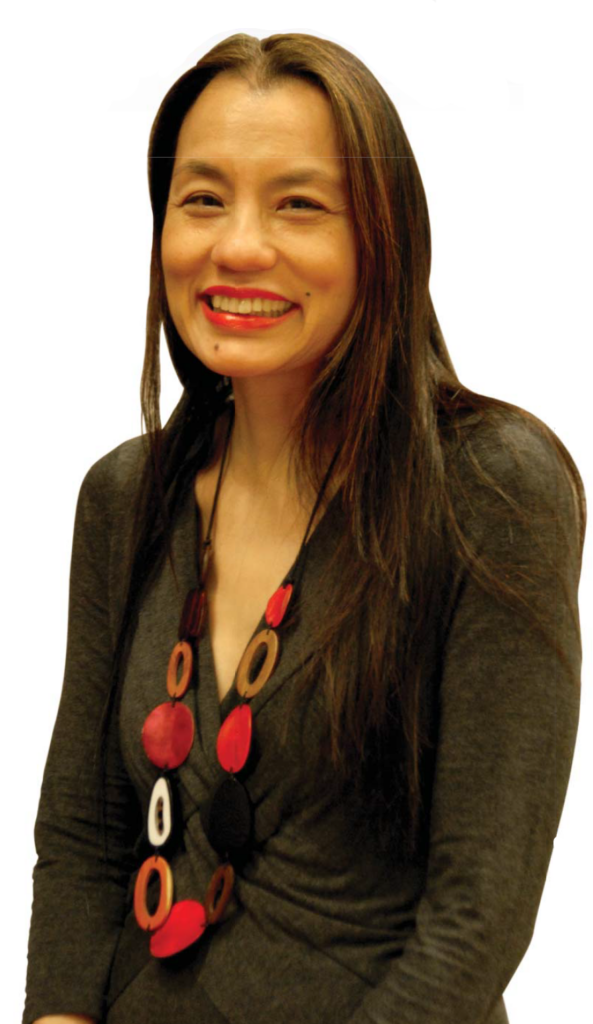Teaching Science and Imparting a Passion
“It’s not just the mechanics of science that you’re imparting, but your love and passion for it as an outgrowth of your years of training and research.“
Published March 1, 2010
By Elizabeth Fong
As told to Adrienne Burke

I’ve been a teacher for more than 20 years—previously at Brooklyn Technical High School and at Stuyvesant High School since July 2001. I teach vertebrate zoology—a lab survey course of the animal kingdom—and I teach anthropology and sociobiology. I’m also chairman of the biology and geosciences department, so I look at my craft from two angles.
Our biology department is quite unique. We offer a lot of advanced biology courses—we have more than 20 biology electives, including a new one this semester, neuroscience, taught by a young neuroscience PhD from the University of Pennsylvania. My department has more PhDs than any department in the school, and they are all academic research PhDs. I would say we rival any small undergraduate biology department in the nation.
We have three pathways for students to take in science. For students who, at this early point in their lives, think they want to be doctors, we offer biology electives in anatomy and physiology that will either continue or pique their interest or reassure that they’re going in the right direction. For upper seniors on that pathway, we offer a hospital internship. For students who are more attracted to academic scientific research, we have a pathway in laboratory research courses. And for students who like science but are humanities based; we offer what we call “science for the poet.”
The Public Misunderstanding of Science
The general public tends to have a misunderstanding of science. There’s a misconception that science is hard to understand, hard to do, and that it is only for a small group of people—the nerds or the technocrats. That’s far from the truth. Science is a discipline that literally helps us to make our lives better from the moment we wake up each day—from the purification of the water we drink to the food processing or agricultural science that provides what we eat. Every aspect of our lives has some basis in science or technology. I think a lot of people have a fear of science.
One way we can correct this is to introduce science at a very young age. Science should be brought to students in preschool, pre-K, kindergarten, and primary school. Not to force facts down their throats, but to give them a lot of field trips, a lot of hands-on activities, and interactions with each other and with the real world. I believe science education at a very young age should be very hands-on.
Also, science education for elementary school teachers has to be improved. There are still some elementary school teachers who approach science from a non-science background. There are certainly enough programs out there preparing teachers to teach science at the high school level. But we also need programs to teach teachers science on a very basic elementary school and middle school level.
Workshops for Teachers
High school science teachers could benefit from workshops on how to effectively reach the goals of your department in the wake of these major budget cuts. It’s costly to run a science department because we have to do labs and maintain the perishables, equipment, and supplies. Where do we look and how do we go about getting funding? Oftentimes you have to write grants and not all of us have experience in writing grants and not all of us have experience in where to go to look for grant money.
Often times when we go to workshops for teachers, it’s more about the pedagogy of delivering a lesson. It’s not so much about really updating your knowledge in terms of the sheer academics of it. I think it should be the blend of the two. For instance, how does a teacher with a full schedule of teaching and family and raising kids and other responsibilities update their knowledge base other than reading the Tuesday Science Times or Academy eBriefings? How do we keep up in our discipline? A lot of us don’t want to go back to school in a formal classroom where you have to spend your spare time writing term papers and taking exams.
I joined the Academy to attend meetings and workshops and also to get the eBriefings. A lot of that information is helpful in running the department because I have a lot of teachers who teach very highly specialized courses. Dr. Jonathan Gastel, our school-wide research coordinator, helps to organize students’ papers, to get them ready for the Siemens Competition in Math, Science & Technology and the prestigious Intel Science Talent Search. If I see an eBriefing that’s interesting, I’ll just direct the information to him or a particular teacher in my department.
Love and Passion
I know that department chairs and teachers in other schools work just as hard as we do. But with the population we have, at the end of the academic year when we see the results on the Regents or the scores on the SAT2 or the AP exams, we get to feel that we’ve done a good day’s work.
I really love what I do for a living. I actually wanted to go into research, but decided to try teaching first. One of the things that I like about being a teacher and mentor is imparting a body of knowledge about a discipline. It’s not just the mechanics of science that you’re imparting, but your love and passion for it as an outgrowth of your years of training and research.
Another thing that is satisfying about teaching is seeing young people who can’t wait to major in biology when they graduate from high school. And then seeing, when they come back for homecoming or alumni day, how, in just one semester or year, they’ve matured. In a matter of a few years, you see their interest grow and blossom and I say to myself, “I hope we had a little bit to do with this.”
This story originally appeared in the Winter 2010 issue of The New York Academy of Sciences Magazine.
